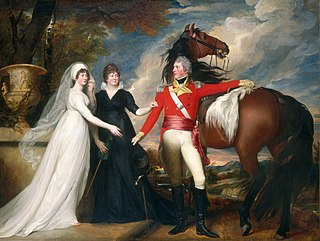Related Research Articles
The first written records of the region come from Arab traders in the 9th and 10th centuries. In medieval times, the region was dominated by the Trans-Saharan trade and was ruled by the Mali Empire. In the 16th century, the region came to be ruled by the Songhai Empire. The first Europeans to visit the Gambia River were the Portuguese in the 15th century, in 1445, who attempted to settle on the river banks, but no settlement of significant size was established. Descendants of the Portuguese settlers remained until the 18th century. In the late 16th century, English merchants attempted to begin a trade with the Gambia, reporting that it was "a river of secret trade and riches concealed by the Portuguese."

Kunta Kinteh Island, formerly called James Island and St Andrew's Island, is an island in the Gambia River, 30 km (19 mi) from the river mouth and near Juffureh in the Republic of the Gambia. Fort James is located on the island. It is less than 3.2 km from Albreda on the river's northern bank.

Field Marshal Sir Archibald Armar Montgomery-Massingberd,, known as Archibald Armar Montgomery until October 1926, was a senior British Army officer who served as Chief of the Imperial General Staff (CIGS) from 1933 to 1936. He served in the Second Boer War and in the First World War, and later was the driving force behind the formation of a permanent "Mobile Division", the fore-runner of the 1st Armoured Division.

Bundu was a state in Africa, later a French protectorate dependent on the colony of Senegal. It lay between the Falémé River and the upper course of the Gambia River, that is between 13 and 15 N., and 12 and 13 W.

The United States Exploring Expedition of 1838–1842 was an exploring and surveying expedition of the Pacific Ocean and surrounding lands conducted by the United States. The original appointed commanding officer was Commodore Thomas ap Catesby Jones. Funding for the original expedition was requested by President John Quincy Adams in 1828, however, Congress would not implement funding until eight years later. In May 1836, the oceanic exploration voyage was finally authorized by Congress and created by President Andrew Jackson.
Colonel commandant is a military title used in the armed forces of some English-speaking countries. The title, not a substantive military rank, could denote a senior colonel with authority over fellow colonels. Today, the holder often has an honorary role outside the executive military structure, such as advocacy for the troops.

Staff College, Camberley, Surrey, was a staff college for the British Army and the presidency armies of British India. It had its origins in the Royal Military College, High Wycombe founded in 1799, which in 1802 became the Senior Department of the new Royal Military College. In 1858 the name of the Senior Department was changed to "Staff College", and in 1870 this was separated from the Royal Military College. Apart from periods of closure during major wars, the Staff College continued to operate until 1997, when it was merged into the new Joint Services Command and Staff College. The equivalent in the Royal Navy was the Royal Naval Staff College, Greenwich and the equivalent in the Royal Air Force was the RAF Staff College, Bracknell.

General Sir William Godfrey Fothergill Jackson, was a British Army officer, military historian, author and Governor of Gibraltar.
General Sir John Antony Jervis Read, was a senior British Army officer who served as Quartermaster-General to the Forces from 1969 to 1973. He was awarded the Military Cross for gallantry during the campaign against the Italian army in East Africa in 1941 and the Distinguished Service Order for his leadership and gallantry whilst in command of 1 Gambia Regiment in Burma in March 1945, during the Second World War.

General Sir Charles Phibbs Jones was a British Army general who reached high office in the 1950s.
General Sir George Balfour KCB was British Army officer and a Liberal politician who sat in the House of Commons from 1872 to 1892.

Lieutenant General Sir George Pemberton Ross Norton is a retired British Army officer. He was the UK Military Representative to NATO. He is now Commandant Royal College of Defence Studies.
Major General Christopher Geoffrey Woolner & Two Bars was a senior British Army officer who served in the First World War and Second World War.
Alfred Burdon Ellis (1852–1894) was a British Army officer and ethnographer, known for his writings on West Africa.

Lieutenant-Colonel William Fitch was a British Army officer, who was killed fighting the Jamaican Maroons during the Second Maroon War.
Sir Alexander Grant was a British Army officer who served as the first Commandant of St Mary's Island from 1816 to 1826.
Pisania, was a settlement in The Gambia. It was visited by the British explorers Mungo Park and Daniel Houghton on their expeditions into the interior of Africa. It has since become the town of Karantaba Tenda.
Valesius Skipton GouldsburyCMG was a British surgeon, military officer, and colonial administrator. He served as Administrator of the Gambia from 1877 to 1884, and Administrator of Saint Lucia from 1891 to 1896.

William Hutton was a British writer. He is notable for having written A Voyage to Africa, which was published in 1821. He also served briefly in the British foreign service in the Kingdom of Ashanti and as Commandant of St Mary's Island, the Gambia.
Henry Anton was a British Army officer and colonial administrator. He served as the Acting Administrator of the Gambia from September 1870 to August 1871.
References
- ↑ "The Gambia". World Statesmen. Retrieved 19 May 2018.
- ↑ Hart, H.G. (1842). The New Army List. London: John Murray. p. 156.
- ↑ Gray, J.M. (1940). History of the Gambia. Cambridge: Cambridge University Press. p. 320.